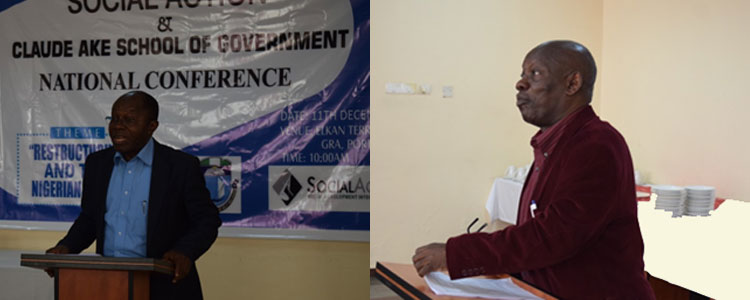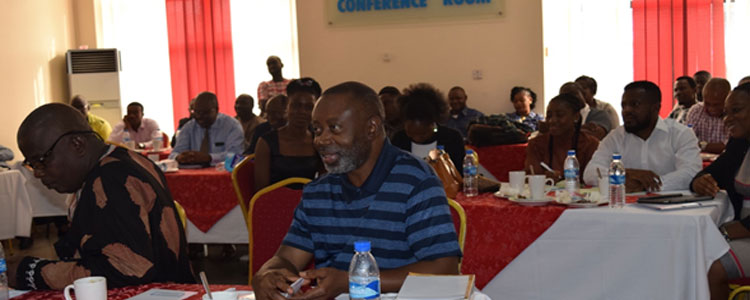‘Restructuring’: Alone and Claude Ake School of Government Hold Conference
Recently, the conversation on the need or otherwise of restructuring the Nigerian state has gained renewed prominence in contemporary Nigerian discourse, especially with the emergence of groups seeking various degrees of structural changes, including the Indigenous People of Biafra and the Niger Delta Avengers. In response to the need to interrogate the different contending issues, Social Action and the Claude Ake School of Government, University of Port Harcourt jointly organised the Nigeria Social Action National Conference in December 2017 in Port Harcourt.
This collaboration stemmed from the need to provide space for serious and constructive dialogue between scholars and thought leaders in the civil space, as a measure to provide clarity and understanding of the critical issues bordering on the restructuring of the Nigerian state. Specifically, the Conference provided space for leading scholars and civic activists to present papers and lead conversations on various sub-themes relevant to the restructuring question with the purpose of engendering a new perspective to the issues as well as developing literature on the subject.
The National Conference which held on the 11th of December 2017 in Port Harcourt, brought together leading Nigerian academics and civil society actors including Prof. Adele Jinadu, Prof. Basil Nwankwo, Prof. Andrew Efemini, Prof Eme Ekekwe, Prof Okey Ibeanu, Dr. Sofiri Peterside, Dr. Yakubu Jae and author of the book We are All Biafrans, Chido Onumah.
 Professors Eme Ekekwe and Adele Jinadu
Professors Eme Ekekwe and Adele Jinadu
Declaring the Conference open, Acting Executive Director of Social Action, Ken Henshaw said “every year the Social Action National Conference is organised to provide spaces for critical voices to discuss one topical issue facing the Nigerian state. This year, the question of restructuring is by far the most contentious of them all. Since the end of the civil war in 1970, never has Nigeria been so deeply divided along the lines of separation and secession. This Conference aims to dive deeper into the various issues toward creating clarity, understanding and policy alternatives in approaching the issue”.
The representative of the Claude Ake School of Government, Dr. Sofiri Peterside in his welcome address stated that “in recent time the call for a restructuring of the Federation had been swelled with two of the dominant ethnic nationalities leading the demand. This brings to the fore some thought-provoking questions about the nature of Nigeria’s federalism: What is the problem with federalism in Nigeria, and what ought to be done about it? Is the problematic the reference to federalism, as such, or to its Nigerian variant? Or is the problem not with federalism, as such or with its Nigerian variant, but with the underlying causative factors that gave rise to it and with which it interfaces, like the antinomies between identity and authority? What should be the federating entities in Nigeria – regions, states, zones or nationalities? What are the salient and historically deep-seated characteristics of the country’ political economy? The preceding questions underscore the complexity of the problem, which federalism poses to the future of Nigeria. Recent calls for a return to an undefined ‘true federalism’ has complexified the ongoing national debate in the context of federalism as an ideology, a political system or as a form of government, or even in the specific context of Nigeria’s constitutional theory or political history. It is in the above-stated context that this Conference is both timely and essential”.
Papers presented at the Conference will be edited into a book on the theme of Restructuring of the Nigerian State, to be published in 2018.
 Professor Andrew Efemini, Chido Onumah and a cross-section of participants
Professor Andrew Efemini, Chido Onumah and a cross-section of participants
